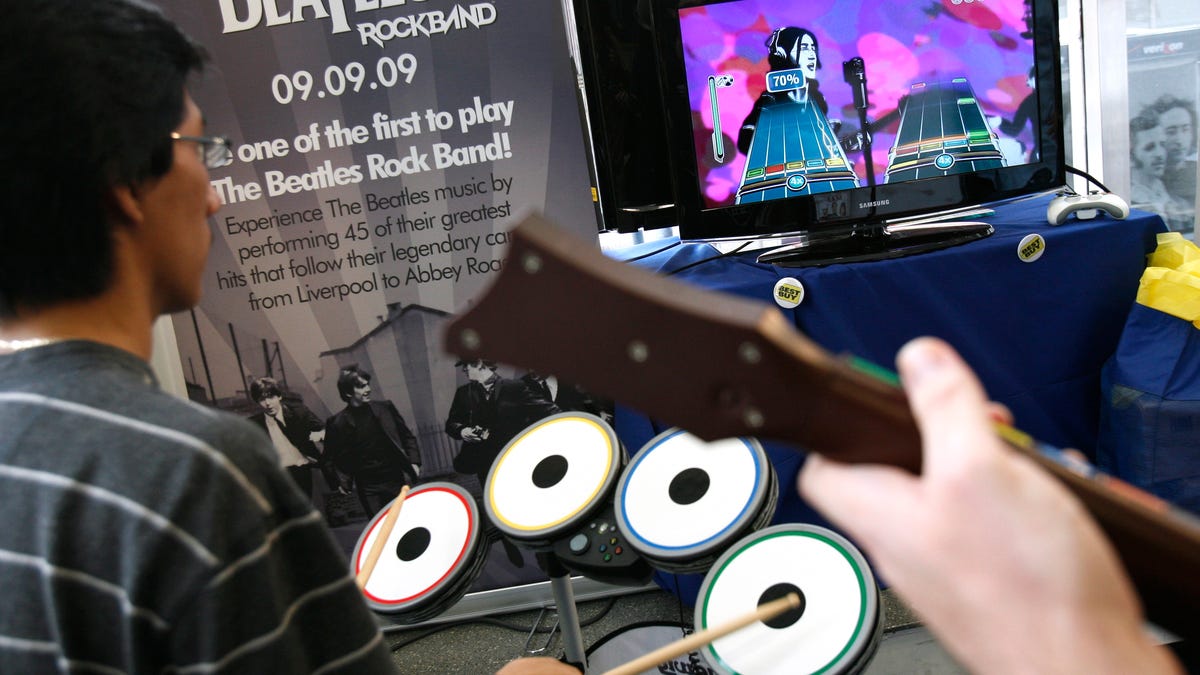[ad_1]

The Beatles’ last song, which is set to be released later this year, is about to create a headache for the Recording Academy, as the organization struggles to clarify whether AI-generated music will be eligible for nomination for the 66th edition of the Grammy Awards slated for Feb. 4 2024.
Recording Academy CEO Harvey Mason could not determine whether the song would make the cut for a Grammy nomination when asked about it by the Associated Press. “We’ll see what it turns out to be,” he said. “From the early descriptions that I’ve heard there would be components of the creation that would be absolutely eligible.” Mason added that he expects many AI songs to be submitted for the awards this year, but “we’ll see if some of them get nominated or not.”
Paul McCartney told the BBC in June that the track was created using AI to extract band leader John Lennon’s voice from an old demo. He then clarified that it was not “artificially or synthetically created.” The Beatles song is widely believed to be titled “Now and Then.” The tune was initially recorded by Lennon in 1978, two years before his death. However, it was not released following a consensus among the band members that “it needed a bit of reworking,” according to McCartney.
Even after the Grammys published new guidelines (pdf) on the use of generative AI in music creation on June 18, it remains unclear the extent to which AI-generated songs can compete with those composed by humans.
What do the Grammy’s AI guidelines say?
The rules state: “Only human creators are eligible to be submitted for consideration for, nominated for, or win a Grammy Award. A work that contains no human authorship is not eligible in any categories.” That would exclude AI-generated hit songs like “Heart On My Sleeve,” which used the voices of Drake and The Weeknd, but it offers hope for the Oasis-inspired eight-track album The Lost Tapes / Vol. 1, in which British rock band Breezer put together the instrumentation and lyrics, but used AI to make the lead vocals sound like Oasis frontman Liam Gallagher.
If a song contains elements of AI material, it would only be eligible in categories matching the element that humans contributed to the song, whether that’s the performance or composition. “The human authorship component of the work submitted must be meaningful and more than de minimis [lacking significance],” the rules read. Arguably, any type of AI participation in a song is the product of a human input, but the rules don’t appear to tackle that philosophical conundrum. It also remains unclear whether tunes featuring AI-generated elements can be eligible for generic categories like “Song of the Year.”
As the Recording Academy tries to find a balance between technology and humans with regard to the Grammys, the US music industry continues to wage war upon AI models. Meanwhile, the US Copyright Office is also looking for the ultimate consensus between humans and machines, and is driving policy changes to incorporate AI into entertainment while preventing copyright infringement.
[ad_2]
Source link
